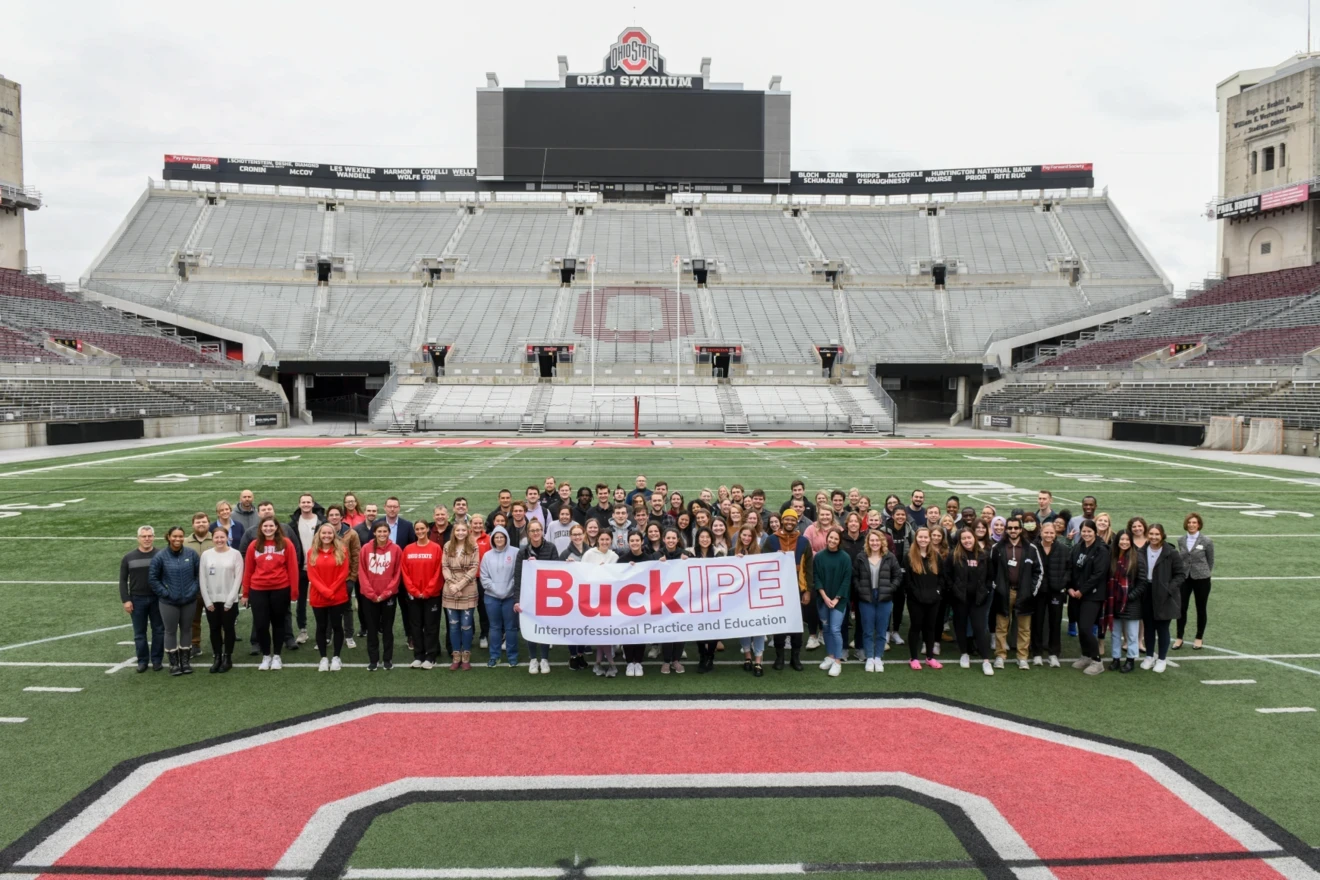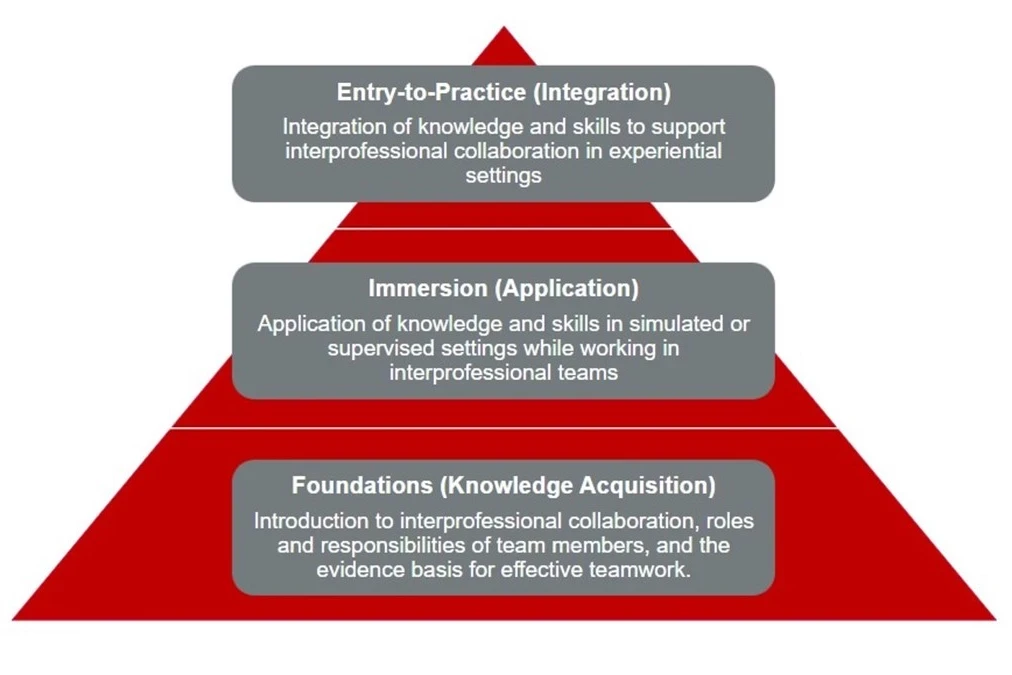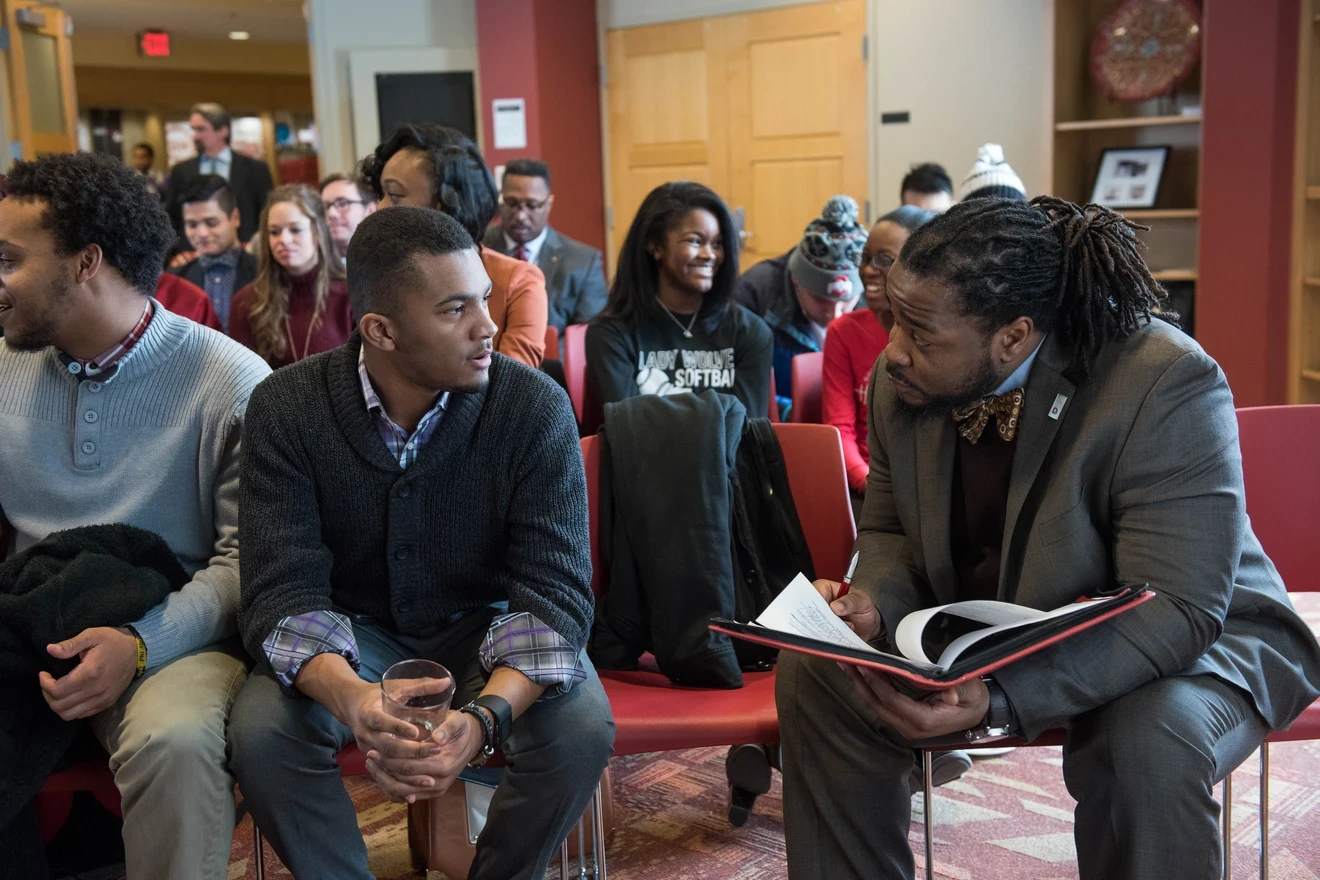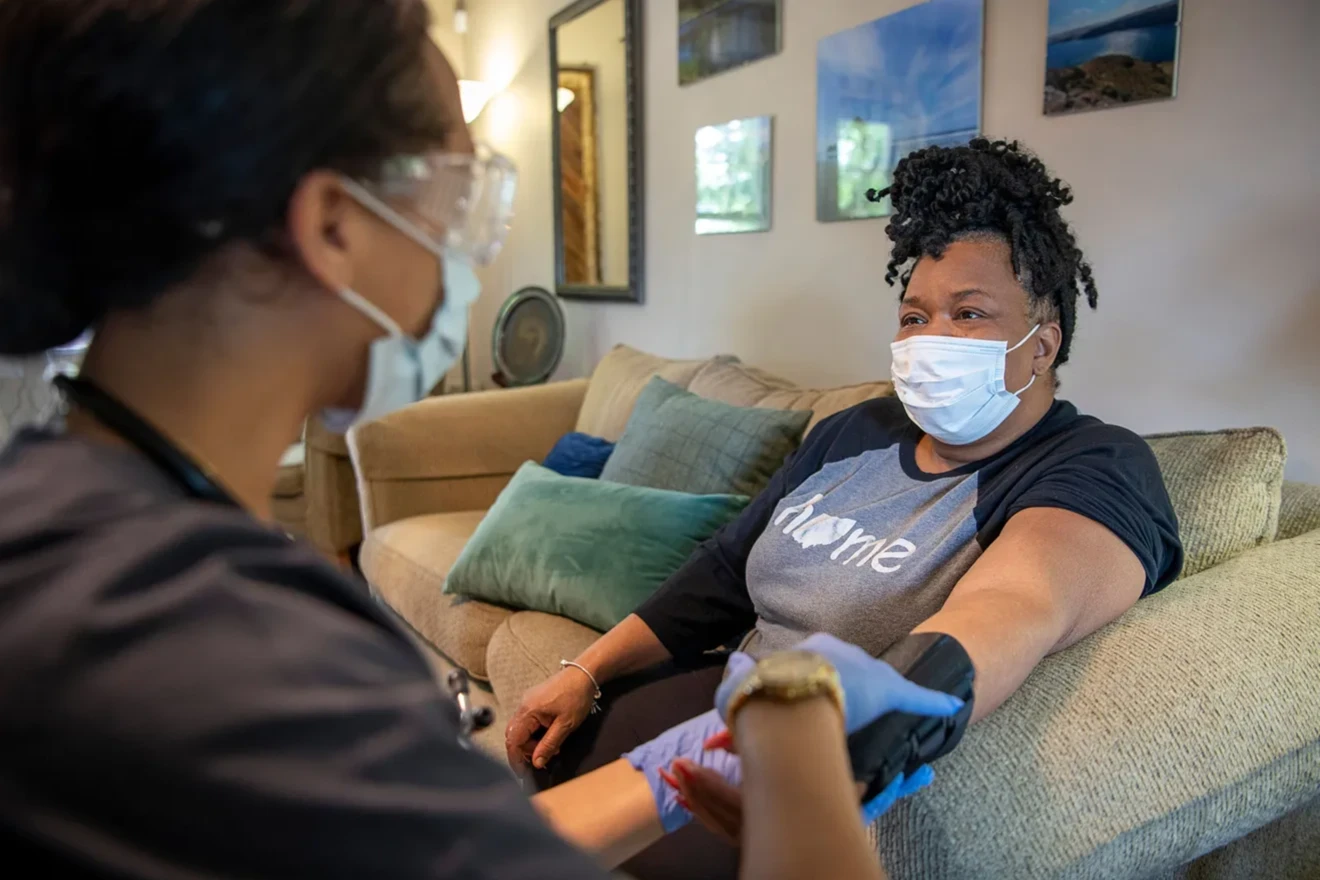BuckIPE
Discover Ohio State’s interprofessional education program.
BuckIPE prepares learners to enter the workforce ready for interprofessional collaboration. The program is a partnership between The Ohio State University and The Ohio State University Wexner Medical Center.

The BuckIPE Experience
Professionals practice in a team setting. We equip students with knowledge and skills necessary to collaborate seamlessly across professions, disciplines, sectors, and in a variety of care contexts. In doing so, we will improve health outcomes in our communities.
At Ohio State, BuckIPE is an interactive and experiential program that engages students, educators, practitioners, and community partners while transforming education and care together.
The Path of Distinction towards a micro-credential in IPE
Flexible and cumulative, the BuckIPE Framework includes three levels and is progressive by design. As students advance from Foundations to Immersion to Entry-to-Practice, they acquire collaborative competencies. The Interprofessional Practice and Education Path of Distinction micro-credentialling program is being piloted in Spring 2023 with the Interprofessional Practice and Education Student Advisory Board and will enable students to document each level of the program that they complete.
The culminating micro-credential will set apart learners who have completed specific requirements and milestones, demonstrating interprofessional collaborative practice competencies in core areas. Mastering these competencies will prepare Ohio State graduates to join the workforce with a collaborative mindset, empowering them to improve healthcare outcomes in their communities.
- Values and Ethics
- Roles and Responsibilities
- Teams and Teamwork
- Communication
- Collaborative leadership
- Evidence-based practice
BuckIPE Learning
BuckIPE includes three levels: Foundations, Immersion, and Entry-to-Practice.

Different by design.
BuckIPE adds an important dimension to health professions education and is guided by the following design principles.
Collaborative
BuckIPE is built on a foundation of mutual respect and admiration for patients, populations, and team members alike. The program is grounded in evidence-based approaches that regard everyone with equal respect, fundamental worth, and moral status.
Accountable
Mutual accountability is key to effective interprofessional practice. From developing a shared language of care, to providing honest feedback on individual and team performance, BuckIPE teaches students what it takes to be impeccable team members.
Patient-centered
Patient and community perspectives are woven throughout every element of the BuckIPE program. All aspects of the curriculum are designed to improve the patient experience and improve health outcomes.
Active
BuckIPE is about putting learning into practice. Each module builds on what came before, enabling students to progressively develop their skills as they learn with and from patients and other healthcare team members.
Foundations
BuckIPE’s educational framework equips students with the knowledge and skills they need to thrive in a collaborative healthcare space. With Foundations modules, educators can offer unique teamwork opportunities that can help solidify relationship-centered healthcare education—from the ground up.
As students engage in each competency, they learn the value of one another’s roles and responsibilities, discover the importance of a collective team, and empower their peers with a unified vision for impactful change. Afterward, educators determine the learner's level of understanding through various evaluation processes and help them transition to Immersion.
Requirements for Foundations:
Students will complete at least three activities:
Want to contribute?
If you have a suggestion for a new Foundation course, contact the IPE Office at IPE@osu.edu.
Immersion
As learners implement their knowledge, educators foster proactive, enriching experiences to address gaps in care and formulate innovative solutions for our community’s most pressing health challenges.
Teach the importance of collaboration
In Immersion courses, educators put learners at the forefront of interprofessional practice. By facilitating a variety of real-world healthcare experiences, educators can assess a student’s ability to work in a team to deliver patient-centered solutions at a professional standard and to achieve high-quality healthcare for all.
Requirements for Immersion:
Once students have completed coursework at the Fundamentals level, the learners transition to Immersion, students will complete at least two courses:
Want to contribute?
If you have a suggestion for a new Immersion experience, reach out to the IPE Office at IPE@osu.edu.
Entry to Practice
In Entry to Practice, students are ready to take on high-level leadership roles as they put collaborative competencies into practice. Educators guide them through their decision-making, placing community and health needs at the center of their care.
As the final level of BuckIPE, Entry to Practice demonstrates a learner’s ability to lead meaningful change in healthcare settings. At this point, educators continue to connect BuckIPE competencies to real-world scenarios, weave interprofessional practice into clinical settings, and make formative decisions that advance the IPE model of care.
Requirements for Entry to Practice:
Students will complete at least two courses:
Want to contribute?
If you have a suggestion for a new Entry to Practice course or experience, reach out to the IPE Office at IPE@osu.edu.
Interprofessional Community Scholars Program
Educators know the value of learning from one another. Through the Interprofessional Community Scholars Program, they have the opportunity to provide community members with the tools and resources they need to understand their health coverage better—while helping students better understand the populations they serve.
Each semester, students of multiple backgrounds and professions are paired with Columbus’ Near East Side residents to foster a collaborative environment where they can listen to—and learn from—one another. After community members are provided with an iPad device, students teach core digital literacy skills that allow them to access important health records and appointment scheduling options. In doing so, they help equip the community with tools that can improve the reach and quality of healthcare in Columbus—and address other gaps in care.

Columbus Free Clinic
As a student-run organization, Columbus Free Clinic offers top-notch, quality care for marginalized communities. Educators can be pivotal in elevating care for the entire community by collaborating with volunteers, students, and community partners.

Buckeye Paws
At OSU, we look past the known—and explore the new. Enter Buckeye Paws. The Wexner Medical Center launched the initiative on March 6, 2020, to provide the university with an innovative animal-assisted therapy program. With trained therapy dogs and certified specialists, educators engage with Buckeye Paws to help improve the mental health of students, faculty, and other staff.
By partnering with certified teams and highly-trained dogs, educators model how to participate in compassion-driven care.

Congestive Heart Failure Interprofessional Care
Facilitate collaborative care that goes straight to the heart. As part of the OSU IPE experience, educators lead integrated medical, pharmacy, and nursing teams that provide home visits to discharged heart failure patients from the OSU Wexner Medical Center.
During their partnership, educators observe their students working across multiple disciplines to monitor for symptoms, gather data, review medications, and conduct additional exams to gain insight into the patient’s medical status. In doing so, they keep students accountable for their learning—and help reimagine how we treat one of our community’s most common chronic conditions.


